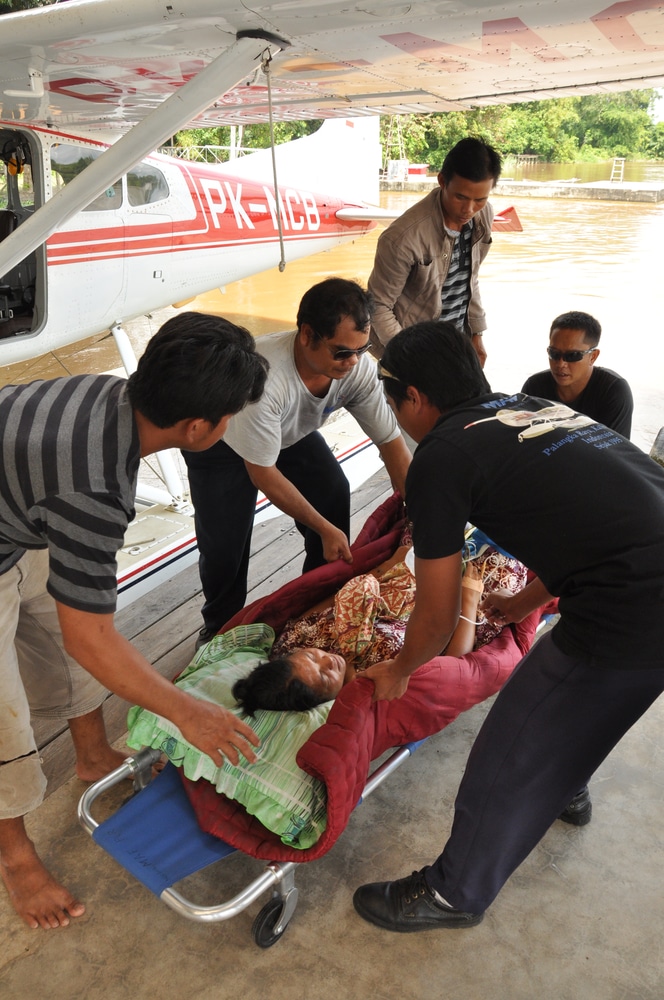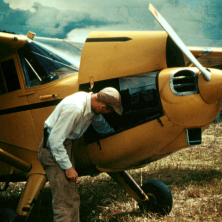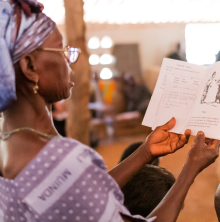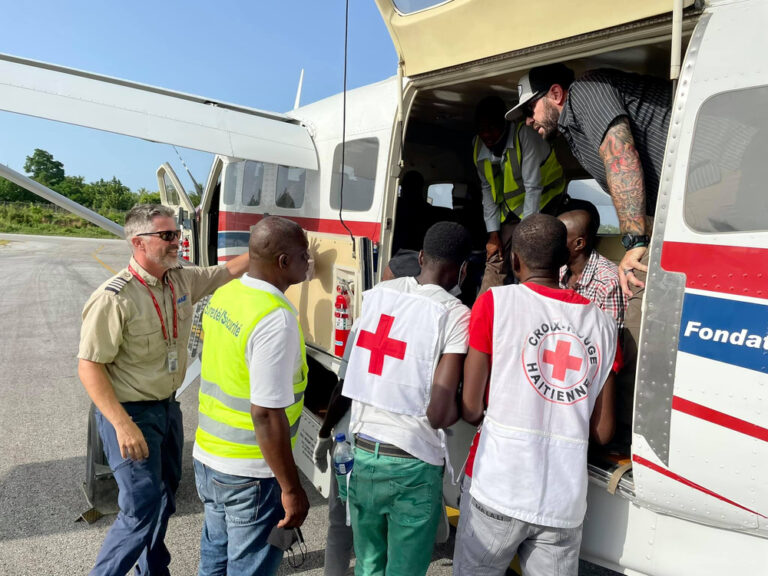An Indonesian woman remembers the impact a small red and white airplane made on her life—and the lives of so many others.
“When I was little, I wondered how an airplane could fly if it couldn’t breathe,” said Yunike Hermanus.
Yunike and I were talking about the Cessna 185 with the affectionate name of “Charlie Brown” that has served indigenous Kalimantan, Indonesia, communities for almost 50 years and 23,000 hours of flight time. Yunike is married to one of the Indonesian staff who care for MAF’s airplanes here. MAF was based out of her own village home of Kelansam for about 30 years starting in the 1970s.
Charlie Brown may not be able to breathe the way you or I do, but to hear the words used by those who’ve either worked closely with it or been flown in it at critical times of their family’s lives, you’d think this plane had a life of its own.

The airplane’s official registration number is PK-MCB, or in pilot-speak, Mike Charlie Bravo. This plane and our other Cessna 185 “Charlie Delta”—equally old—will be retired, crated up and sent to MAF US’s headquarters in Idaho this fall. The current plan is to display them there. Collectively, they’ve served 100 total years and flown almost 50,000 total hours.
Some believe that the church in Kalimantan would not have grown without MAF—specifically without Charlie Brown, which started flying there in 1969. Within a few years, that small airplane would serve the 50 different airstrips dotted around the island almost every week.
At one point, Charlie Brown had wheels and served missionaries on runways cut by hand out of jungles in West Kalimantan. Later it was converted to a floatplane, and has been flying in Central Kalimantan’s ever-changing, challenging rivers for the past 20 years.
“The plane would bring food, vegetables, LPG bottles for cooking,” said Tommy Yansen, who helped build a runway that gave airplanes access to his village in the 1970s. “It would carry pastors, Sunday school teachers, and patients going to the hospital.”
“It used to take four days for us to get patients to a hospital,” said Asaskarto, an Indonesian nurse. With Charlie Brown, patients could get to his hospital in an hour.

Charlie Brown impacted so many lives throughout the years in Kalimantan—and one day he was needed to save Yunike’s brother.
Yunike grew up in remote villages, where her father served as a pastor or taught at a Bible college that trained other Indonesian teachers and pastors to reach isolated communities. One day, her brother needed urgent medical care.
“He needed surgery for his stomach,” Yunike’s mother, Naomi, recalls. “The doctor said if we’d been just one day later, he would’ve died.”
This small airplane played a major role in Yunike’s life and the lives of so many like her. She hopped on and off Charlie Brown throughout her childhood, knowing the pilots as family and their kids as friends. But her own life was saved one day after she followed in her parents’ legacy to serve with her Indonesian pastor husband in the remote village of Ulak Mued.
She was so sick, she lost consciousness. Someone took her by boat to the nearest airstrip.
“If the airplane hadn’t taken me (to the hospital), I don’t know if I’d be alive today,” Yunike said.
By the 1990s, MAF pilots were looking at the transportation and ministry needs in the central part of Kalimantan. Doug Allrich, an MAF pilot, did the first survey flight in the area.
“The community was thrilled with our interest in serving their transport needs,” said Doug. “Central Kalimantan was a vast area with seven river systems and we felt that if we could get something built, the rest would fall into place.”
So the decision was made that Charlie Brown would be transformed into a floatplane so that even more people could be reached by MAF.

A change came for Yunike as well. Her husband died, and she moved with her two young kids to Central Kalimantan to work with an MAF family as a cook, babysitter and housekeeper. She later married Daniel Ogasto, an MAF staff member who helped take care of Charlie Brown for the past 15 years.
Charlie Brown’s successor will still be connected to Yunike’s family. Soon Daniel will be learning how to care for a much more complex airplane—the amphibious KODIAK PK-MEE—arriving in 2018. And just as Charlie Brown made an impact and left an impression on so many lives in so many ways, PK-MEE will do the same as it carries on the work of reaching Borneo’s lost and vulnerable people with the love of Christ.
Story originally appeared in the November 2017 issue of FlightWatch (Vol. 5).



